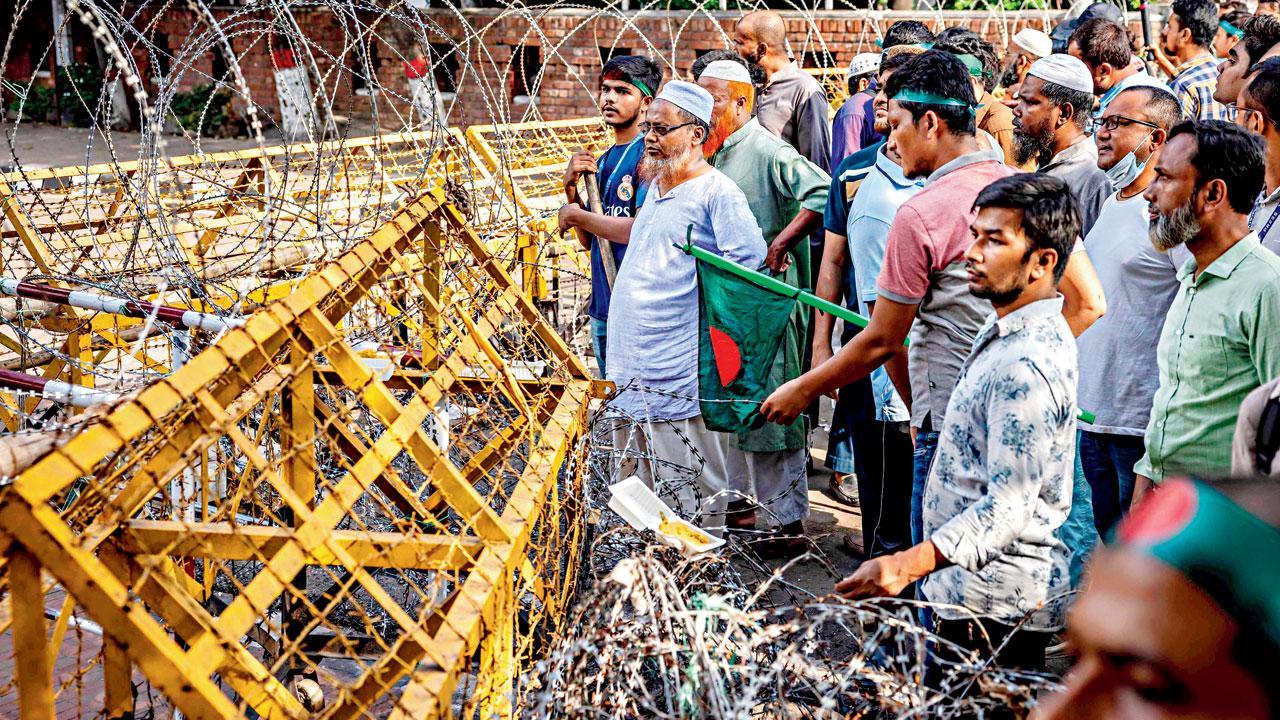UN says nearly 650 people killed in coup-hit Bangladesh between July 16 and Aug 11

Protesters hold Bangladesh’s national flags as they march to block the house of father of the nation Sheikh Mujibur Rahman on August 15, to mark the anniversary of his assassination. FILE PIC/AFP
The caretaker government in Bangladesh is committed to ensuring a transition to inclusive and pluralistic democracy and creating an environment in which “free, fair and participatory elections” can be held, its head Mohammad Yunus assured the international community on Saturday. Yunus, the chief advisor of the interim government, said while addressing the third Voice of Global South Summit which was hosted by India in a virtual format.
ADVERTISEMENT
“You all are aware that Bangladesh witnessed a ‘Second Revolution’ on August 5, 2024, through a mass uprising spearheaded by our valiant students and joined by the masses,” the 84-year-old Nobel laureate said, referring to the political turmoil in his country and the resignation of PM Sheikh Hasina.
Noting that the current interim government led by him was sworn in on August 8, Yunus said, “Our government is committed to ensuring a transition to inclusive and pluralistic democracy and creating an environment in which free, fair and participatory elections can be held.” “Our task is now to carry out vital reforms in our electoral system, judiciary, local government, media, economy and education,” Yunus said at the summit being attended by Prime Minister Narendra Modi.
Meanwhile, a UN Human Rights Office has said in a preliminary report that nearly 650 people were killed in recent spate of violence in the country between July 16 and August 11, suggesting a thorough, impartial and transparent investigation into reports of extrajudicial killings, arbitrary arrests and detentions.
According to the 10-page report titled “Preliminary Analysis of Recent Protests and Unrest in Bangladesh”, nearly 400 deaths were reported between July 16 and August 4 while around 250 people were reportedly killed following the new wave of protests between August 5 and 6. The available public reports by media and the protest movement itself claimed that between July 16 and August 11, more than 600 people were killed due to the wave of violence following the anti-discriminatory student demonstrations.
This story has been sourced from a third party syndicated feed, agencies. Mid-day accepts no responsibility or liability for its dependability, trustworthiness, reliability and data of the text. Mid-day management/mid-day.com reserves the sole right to alter, delete or remove (without notice) the content in its absolute discretion for any reason whatsoever
 Subscribe today by clicking the link and stay updated with the latest news!" Click here!
Subscribe today by clicking the link and stay updated with the latest news!" Click here!







